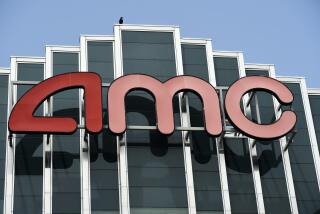Lions Gate takes neutral stance -- sort of -- on Icahn bond tender offer
- Share via
Lions Gate Entertainment Corp. officially said Thursday that it was remaining “neutral” on whether investors should tender their bonds to activist shareholder Carl Icahn.
At the same time, the company is sending a strong message to debt holders: Seller beware.
In a two-page statement, the film and TV studio marshaled five arguments that it “strongly urged” note holders to consider before tendering their bonds. Although Lions Gate said its board had determined that note holders should make their own decisions about whether to tender, the company mustered no reasons in favor.
That, however, came as no surprise to Wall Street.
“It’s just standard,” said David Joyce, a media analyst at New York’s Miller Tabak & Co. “Lions Gate is just making sure everyone isn’t doing a knee-jerk reaction to an activist being involved in the company.”
Icahn, who owns 14.5% of Lions Gate’s common stock and is threatening to launch a proxy war, made an offer to buy as much as $325 million of its public debt at 75 cents on the dollar for $150 million of notes due in 2024 and 73 cents on the dollar for $175 million of notes due in 2025.
Icahn made the offer in mid-March after his talks with Lions Gate to win board seats unraveled.
Lions Gate said investors might get a higher return by holding onto their notes. “There may be greater value” for holders of the notes beginning in 2011 and 2012, respectively, “than under the Icahn Group’s current offer,” the company stated.
Beginning on those dates, and at specific times thereafter, the company said it would be required to repurchase the notes for a price equal to 100% of the principal amount, plus accrued and unpaid interest.
If Icahn proves successful in buying up the debt and converting it to equity, his stake would more than double.
Lions Gate’s board reminded bondholders that ownership of more than 20% of the stock would be considered a change of control and could trigger its revolving credit facility to be in default.
Lions Gate also pointed out that a change of control at the company could also trigger the “potential default and acceleration” of other outstanding debt.
--
More to Read
The biggest entertainment stories
Get our big stories about Hollywood, film, television, music, arts, culture and more right in your inbox as soon as they publish.
You may occasionally receive promotional content from the Los Angeles Times.









